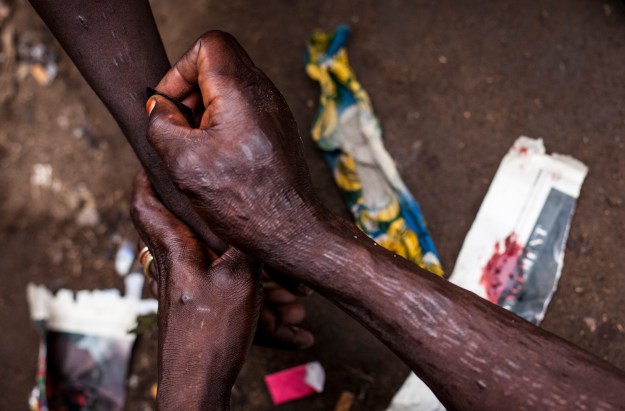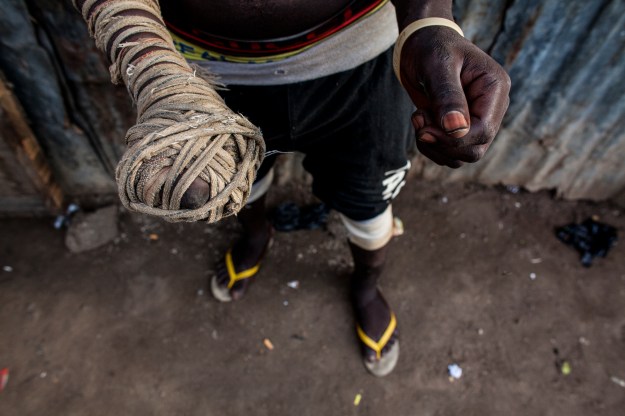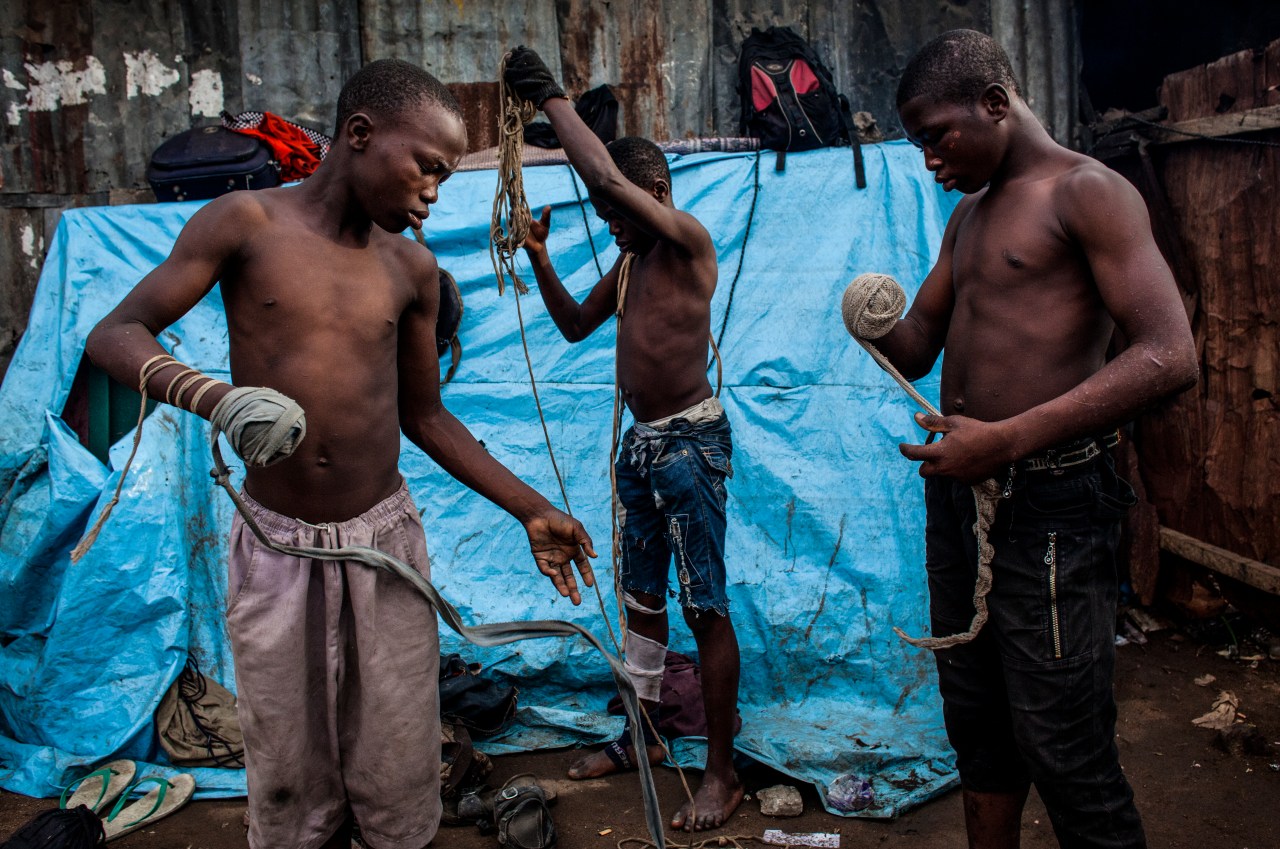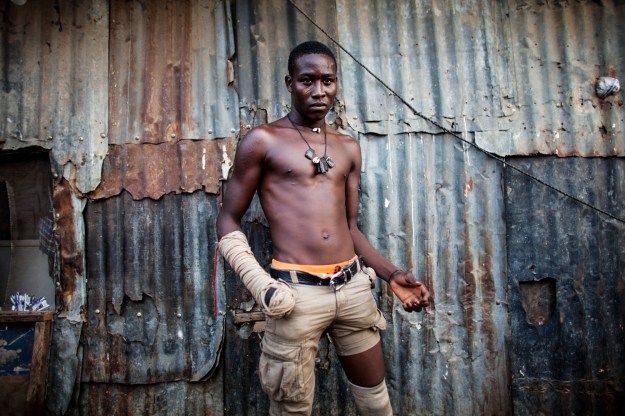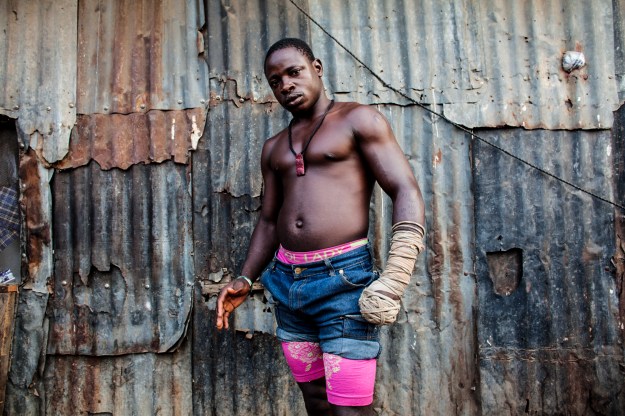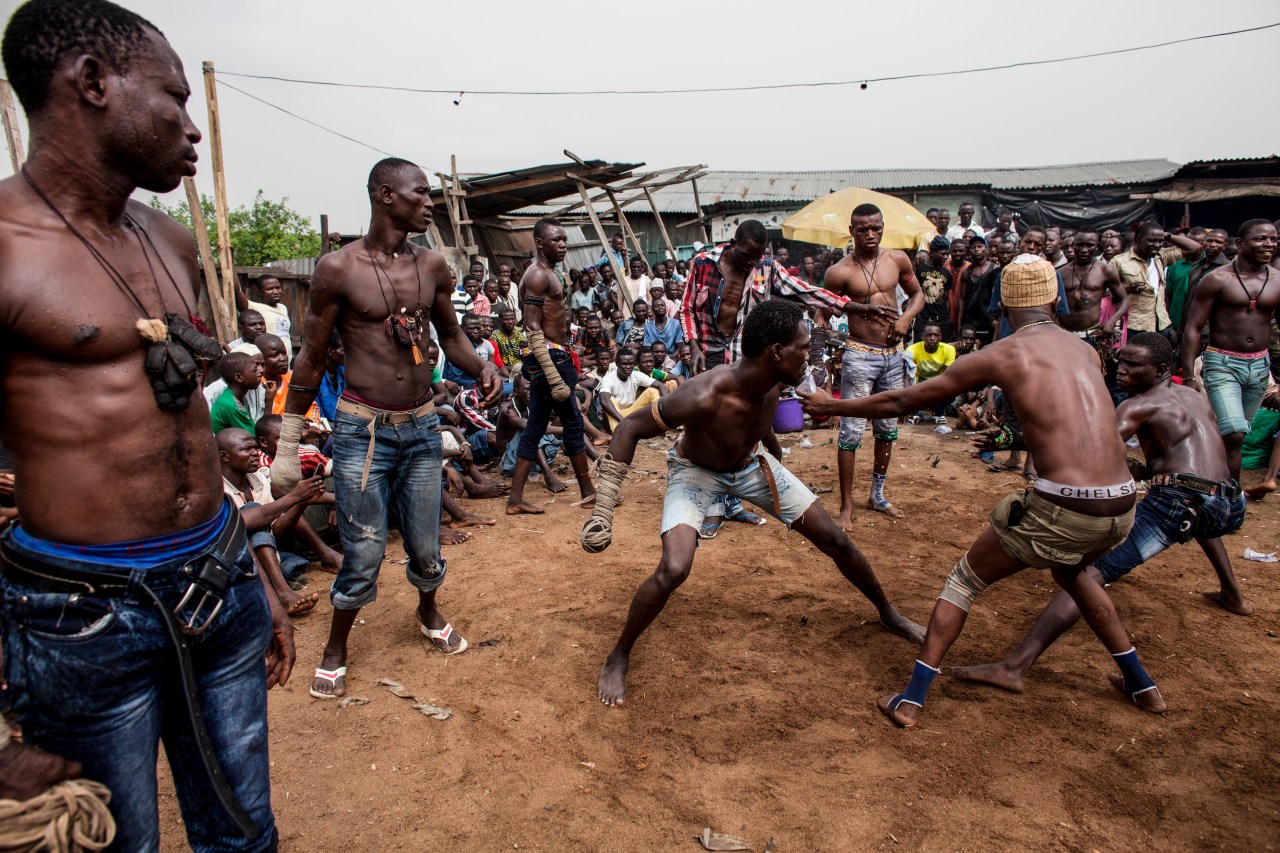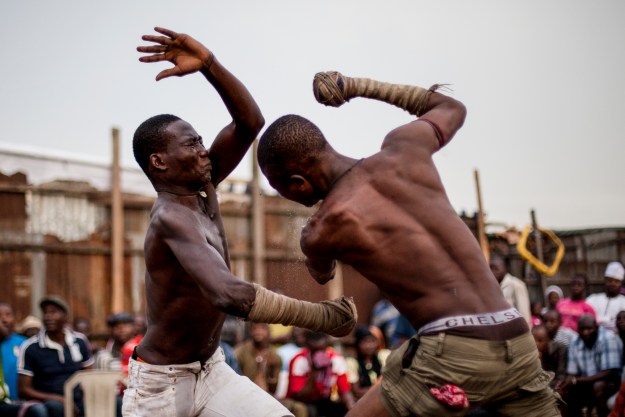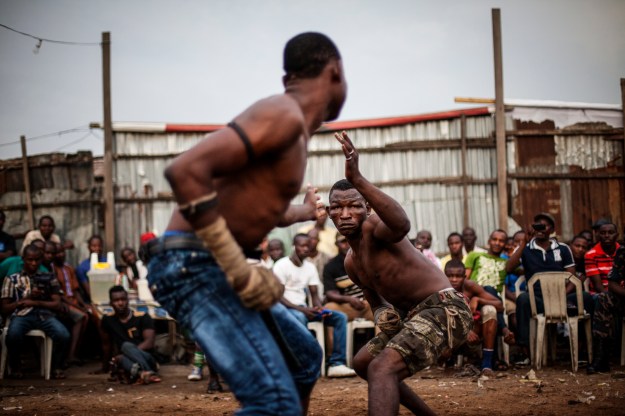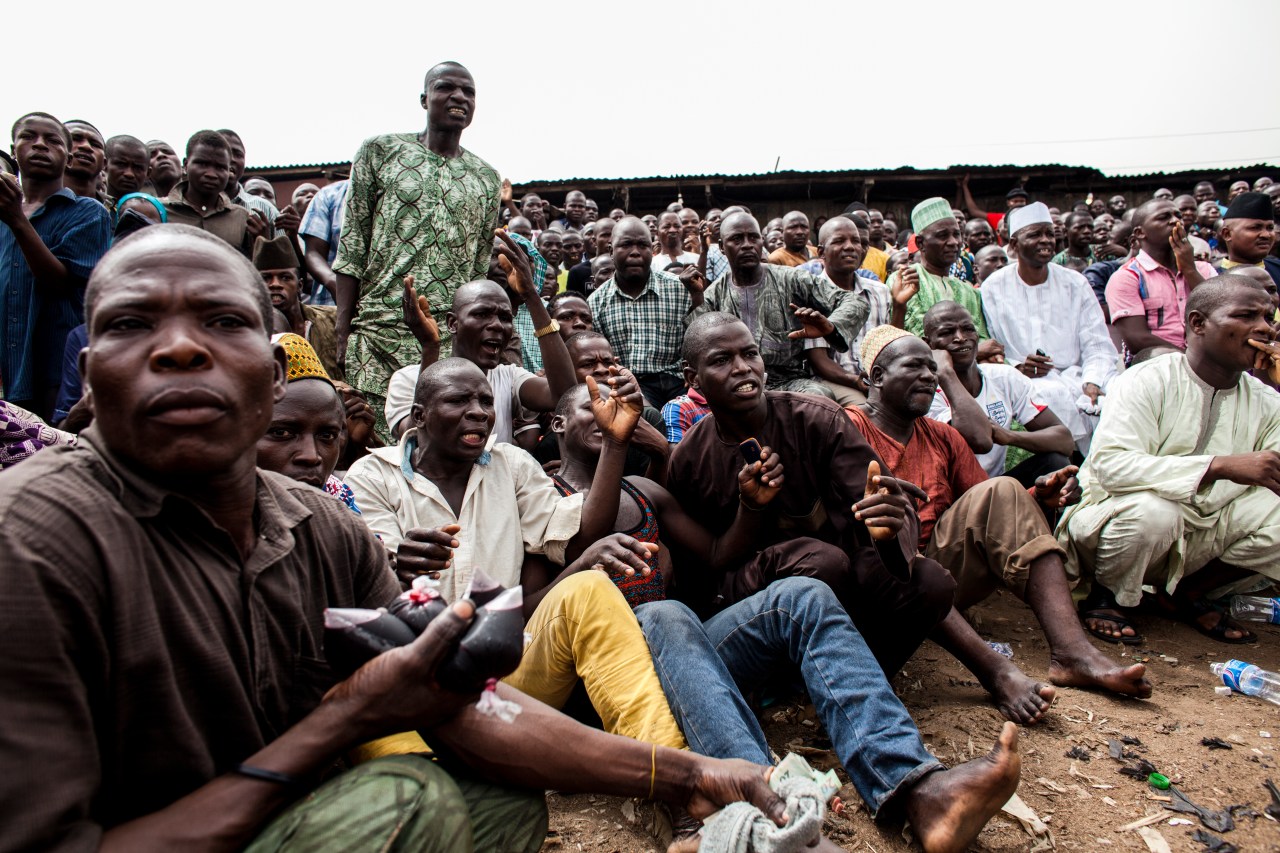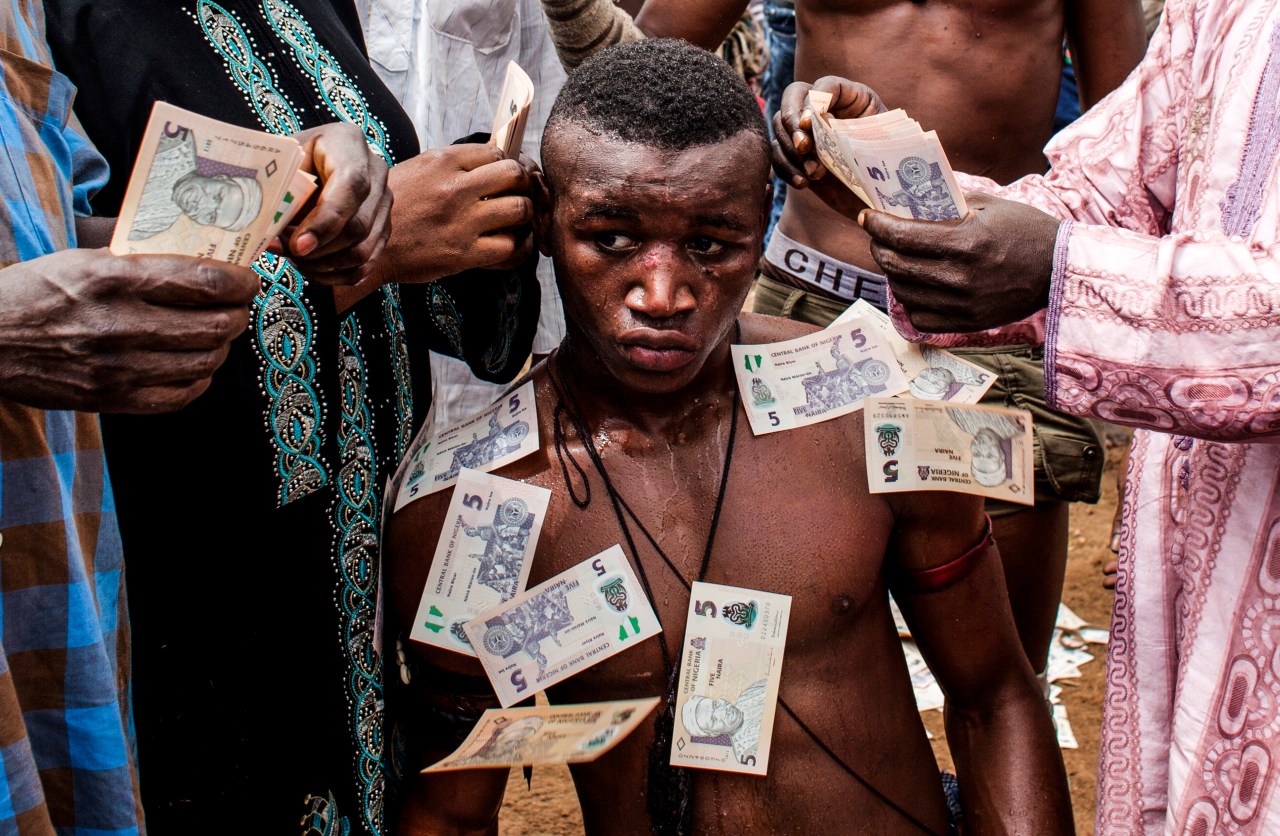Rhythmic drumming fills a small makeshift arena at the Mile 12 market in Lagos, Nigeria. As musicians call fans to sing in support of the men who are about to enter the ring, the fighters prepare themselves physically and spiritually for the coming battle. Boxers use blades to make small incisions on each other’s striking arm and rub a mixture of marijuana and other herbs previously blessed by an Islamic healer into the cut to provide strength. These herbs and pieces of the Koran are also placed in charms and amulets worn around the neck, arms, and legs, and stuffed into pockets, all providing protection and strength against the opponent.
Dambe boxing began as a martial art practiced by Hausa men to prepare for war. Later, members of the Hausa butchers guild, a group of men who could ritually slaughter animals, began fighting in matches while traveling through the north during harvests and festivals. The fights were considered tests of bravery for the guild, an honor for the family and village, and a rite of passage for marriage. It also provided a historical link with forefathers who practiced the martial art for hundreds of years.
Today, most men fight for sport, fame, and money. Some can collect thousands of dollars from fans. Others are offered large gifts, such as motorbikes or a paid trip to the Hajj. This, in a country where many survive on $2 a day.
During combat, one arm is considered the “spear,” or striking arm, and the other the “shield,” or the blocking arm. The “spear” is wrapped carefully in material or rope. If it becomes unraveled, the match is stopped until spear is fixed. In the past the “spear” was dipped in resin and broken glass, but that practice has been outlawed.
Each match consists of three rounds, each lasting a few minutes. A winner is declared at the end, but often both the winner and his opponent will be “sprayed” with money from fans in appreciation for their efforts and abilities. The winner is paraded around the venue in a celebratory march before the next match begins.
